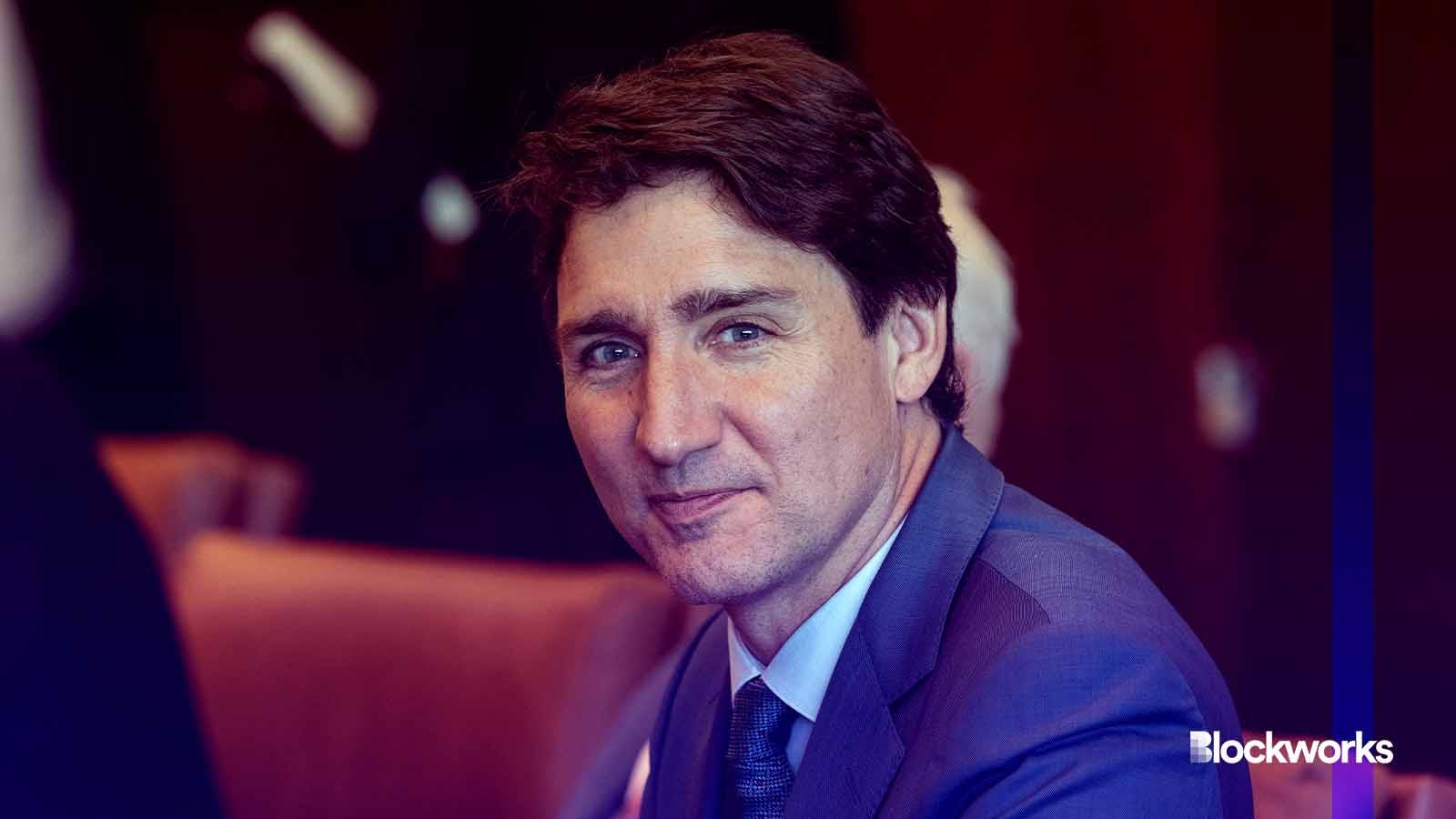Bitcoin donation freeze was unlawful, Canada judge rules
Justice Richard Mosley said Trudeau’s administration acted outside their authority by invoking the Emergencies Act in Feb. 2022

Canadian Prime Minister Justin Trudeau | lev radin/Shutterstock modified by Blockworks
Ottawa acted against the constitution when it froze bitcoin and other assets in an attempt to end 2022 anti-government protests, a federal judge ruled Tuesday. The Canadian government will appeal the decision, Finance Minister Chrystia Freeland said.
Prime Minister Justin Trudeau invoked the 1988 Emergencies Act in February 2022 for the first time in the country’s history in an effort to clear the “Freedom Convoy” and block financial support to the protesters.
In a decision released Tuesday after three days of arguments in court last April, Justice Richard Mosley said Trudeau’s administration acted outside their authority.
“I have concluded that the decision to issue the Proclamation does not bear the hallmarks of reasonableness — justification, transparency and intelligibility — and was not justified in relation to the relevant factual and legal constraints that were required to be taken into consideration,” Mosley wrote.
In a Feb. 15, 2022 statement, Trudeau said the Emergencies Act was his only option as the country had reached a point “where there is a national emergency arising from threats to Canada’s security.”
Truckers and their supporters descended upon Ottawa in 2022 to protest Covid vaccine requirements and other public health policies, blocking a key US-Canada trade route in the process. Donations to the cause poured in from all over the world, particularly in bitcoin after crowdfunding platforms including GoFundMe and GiveSendGo shut down contribution pages.
By late February, protesters had received around 20 bitcoins, at the time equal to about $1 million, through donations via crypto platform Tally. The Ontario Provincial Police and Royal Canadian Mounted Police sanctioned more than 30 crypto wallets it said were tied to the crowdfunding efforts.
Freeland said Tuesday after the decision that the administration stands by their actions.
“We respect very much Canada’s independent judiciary. However, we do not agree with this decision, and respectfully, we will be appealing it,” she said. “I was convinced at the time it was the right thing to do, it was the necessary thing to do. I remain and we remain convinced of that.”
Get the news in your inbox. Explore Blockworks newsletters:
- The Breakdown: Decoding crypto and the markets. Daily.
- 0xResearch: Alpha in your inbox. Think like an analyst.






